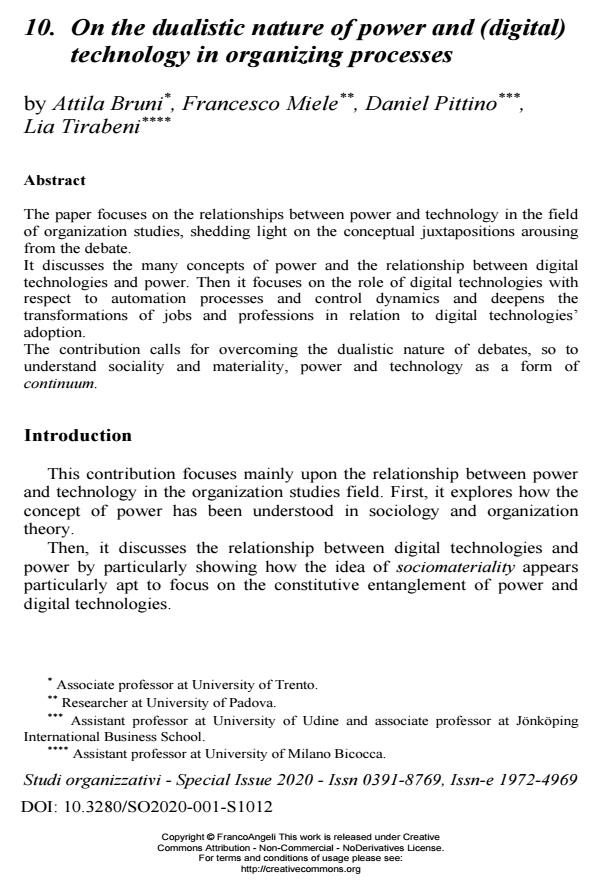On the dualistic nature of power and (digital) technology in organizing processes
Titolo Rivista STUDI ORGANIZZATIVI
Autori/Curatori Attila Bruni, Francesco Miele, Daniel Pittino, Lia Tirabeni
Anno di pubblicazione 2020 Fascicolo 2020/suppl. 1
Lingua Inglese Numero pagine 13 P. 207-219 Dimensione file 213 KB
DOI 10.3280/SO2020-001-S1012
Il DOI è il codice a barre della proprietà intellettuale: per saperne di più
clicca qui

FrancoAngeli è membro della Publishers International Linking Association, Inc (PILA), associazione indipendente e non profit per facilitare (attraverso i servizi tecnologici implementati da CrossRef.org) l’accesso degli studiosi ai contenuti digitali nelle pubblicazioni professionali e scientifiche.
The paper focuses on the relationships between power and technology in the field of organization studies, shedding light on the conceptual juxtapositions arousing from the debate. It discusses the many concepts of power and the relationship between digital technologies and power. Then it focuses on the role of digital technologies with respect to automation processes and control dynamics and deepens the transformations of jobs and professions in relation to digital technologies’ adoption. The contribution calls for overcoming the dualistic nature of debates, so to understand sociality and materiality, power and technology as a form of continuum.
- Reintroducing technology to the coworking debate: prospects and problematics Maddalena Sorrentino, Lia Tirabeni, Maria Laura Toraldo, in STUDI ORGANIZZATIVI 2/2023 pp.70
DOI: 10.3280/SO2022-002003
Attila Bruni, Francesco Miele, Daniel Pittino, Lia Tirabeni, On the dualistic nature of power and (digital) technology in organizing processes in "STUDI ORGANIZZATIVI " suppl. 1/2020, pp 207-219, DOI: 10.3280/SO2020-001-S1012